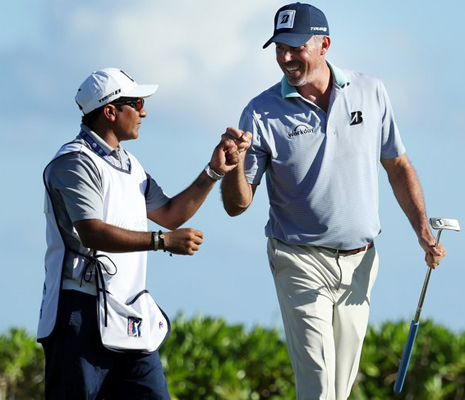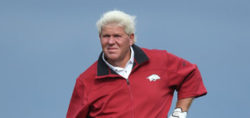The Precarious Position Of Defending Yourself Once Social Media Accuses You Of Wrongdoing

Photo by Rob Carr/Getty Images
Matt Kuchar found himself in the precarious position of whether his morals were above ground. There has to be nothing more frustrating than being accused of a “crime” if indeed none was committed. But what happens when social media has deemed you guilty without waiting for response or due process? To wit is the curious case of Kuchar being accused by a fellow peer pro of stiffing his temporary caddie while winning last year’s Mayakoba Classic.
Does the accused have any wiggle room or are they doomed to ever-lasting questions of reputation? That’s what Golf.com’s Joel Beall aptly asks.
The match was lit at 5:08 p.m. ET; by 10, Kuchar, a beloved and venerated personality by American crowds, had come on the business end of a Twitter roasting . . . over how much he paid a fill-in caddie.
Five hours is all it took. Five hours in which Kuchar was on the golf course, oblivious to the drubbing.
“It’s not a story,” Kuchar would eventually say. This statement was aimed at the rumors; time will tell if he’s proven right. Through another prism, Kuchar is already wrong. Because stories like this are a reckoning more and more athletes are forced to confront.
Kuchar’s case, however, felt different, for it wasn’t a tip as it was wages owed. The optics alone—a veteran with $46 million in career earnings low-balling a man who makes less than $46,000 a year—were damning. That Gillis’ previous blast of Ben Crane over an unpaid bet to Daniel Berger proved accurate wasn’t helping, nor was Australian pro Cameron Percy’s reply of, “It’s not out of character if true.” Several popular media personalities stoked the fervor with their Kuchar stories. The only notable name to defend Kuch was Golf Channel analyst Brandel Chamblee, and he was promptly “ratioed”—the phantasm to describe the overwhelming amount of negative reaction to a tweet—in kind.
This outcry is predictable, and if Gillis is right, understandable. Save for one problem: neither Kuchar nor Ortiz had publicly spoken on the issue.
The problem with narratives that emerge on social media is athletes have two options: response or silence. Neither is particularly desired. As Kuchar showed, a response never quiets the whispers, and silence only makes them grow louder.
The issue with social media’s mob mentality of instant accusation is the fire ignites and spreads quickly–no matter the evidence of proof. Guilty until proven innocent is the new rally cry. And even if ultimately found innocent, the damage of reputation has already left permanent scars impossible to conceal all while the mob moves onto another convenient victim. Such is the world we live in.
And that frankly sucks.






